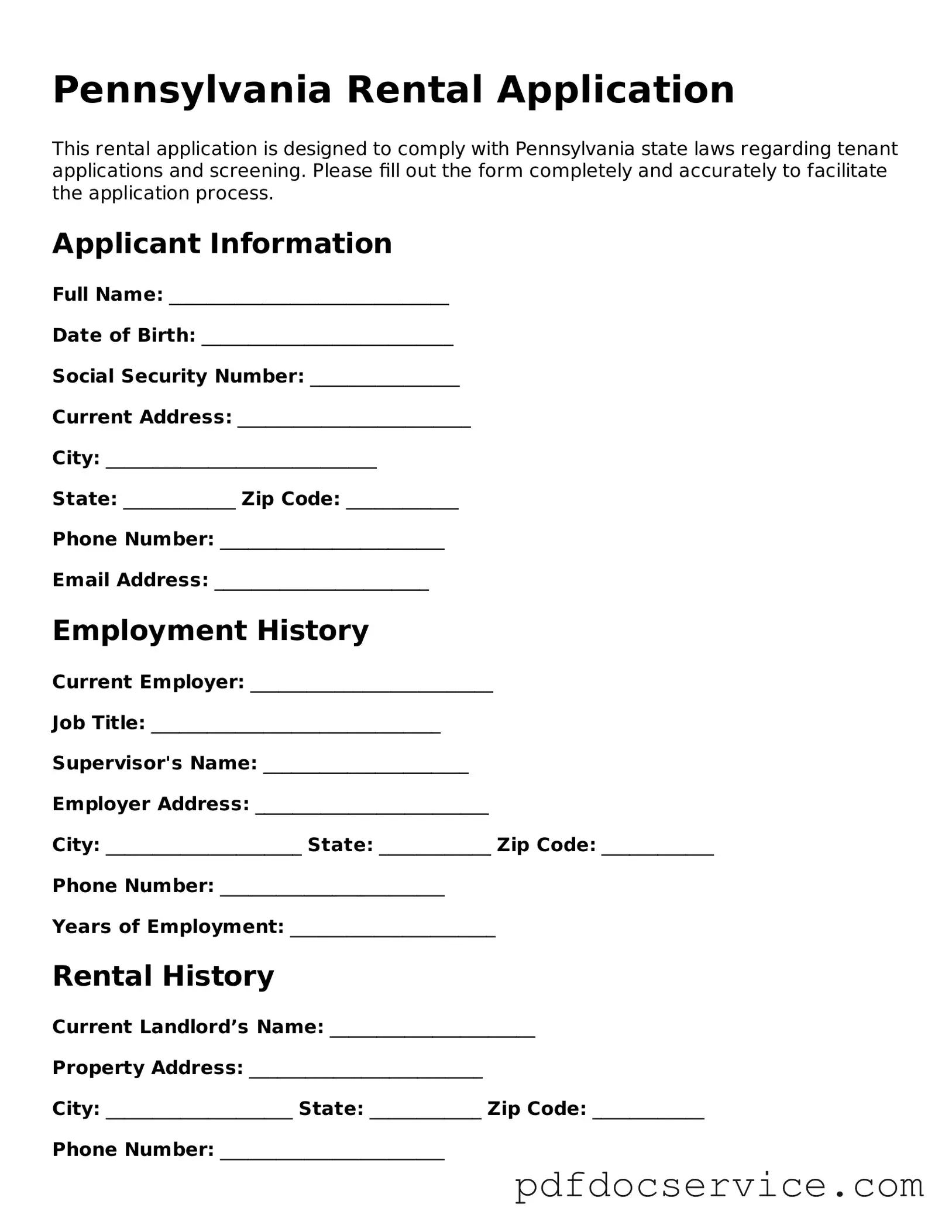Printable Rental Application Template for Pennsylvania
The Pennsylvania Rental Application form is a document that potential tenants complete to provide landlords with essential information about their rental history, income, and background. This form helps landlords assess whether an applicant is a suitable candidate for renting their property. Understanding the components of this form can simplify the rental process for both tenants and landlords alike.
Open Rental Application Editor

Printable Rental Application Template for Pennsylvania
Open Rental Application Editor

Open Rental Application Editor
or
Get Rental Application PDF
Finish the form now and be done
Finish Rental Application online using simple edit, save, and download steps.